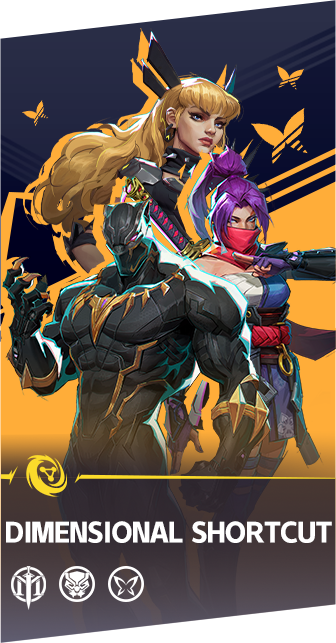Is there SBMM in Marvel Rivals? This question has sparked debates among players who are eager to understand the intricacies of the game's matchmaking system. Skill-Based Matchmaking (SBMM) is a crucial aspect that can significantly impact gameplay experience, especially in competitive settings. Players often wonder whether casual playlists incorporate this system or if it's reserved exclusively for ranked modes.
Unveiling the truth behind Marvel Rivals' matchmaking systems requires diving deep into player experiences and official statements from developers. As opinions vary widely, some gamers argue that SBMM doesn't belong in casual playlists, emphasizing the need for fun over competition. Others claim that even casual modes might secretly employ elements of SBMM. Let’s explore these perspectives and shed light on how Marvel Rivals handles its matchmaking processes across different game modes.
Exploring the Role of SBMM in Marvel Rivals Gameplay
Marvel Rivals has undergone several updates aimed at refining its competitive structure, which naturally raises questions about the presence of SBMM in casual play. According to Noel Rodriguez, casual playlists should remain untouched by SBMM mechanics, allowing players to enjoy less structured matches without worrying about skill parity. This viewpoint resonates with many who believe that casual modes are meant for relaxation rather than intense competition.
Despite reworking competitive features, maintaining distinct boundaries between casual and ranked environments remains essential. The absence of SBMM in casual settings ensures that all players, regardless of skill level, can participate freely without feeling pressured to perform optimally. Such inclusivity fosters a welcoming atmosphere where newcomers and veterans alike can engage meaningfully.
However, concerns persist regarding potential imbalances within casual games. Some users report encountering extreme disparities in opponent capabilities, suggesting possible flaws in the current matchmaking algorithm. Addressing these issues while preserving the intended casual experience poses a challenge for developers striving to enhance overall satisfaction.
Analyzing Player Feedback on SBMM Implementation
User TheRideMajestic expressed strong sentiments against incorporating SBMM into Marvel Rivals casual modes, reinforcing the argument that such systems belong solely in competitive arenas. Competitive mode inherently caters to players seeking challenging matchups based on skill levels, making it the ideal platform for implementing SBMM. By contrast, casual play thrives when free from rigid matchmaking constraints.
Kelvin shared his frustrating encounter with what seemed like an unfavorable SBMM decision during a ranked session. His experience highlights the complexities involved in balancing competitive fairness with enjoyable gameplay. While SBMM aims to create equitable contests, occasional mismatches inevitably occur due to various factors influencing player performance.
Such feedback underscores the importance of transparent communication between developers and users regarding matchmaking practices. Understanding player expectations and addressing their concerns through continuous improvements helps maintain trust and engagement within the community. Regular updates reflecting user input demonstrate commitment to enhancing the gaming experience.
Assessing Marvel Rivals' Matchmaking Challenges
A significant critique leveled against Marvel Rivals involves claims of having one of the worst SBMM systems in gaming history. Critics point out severe inconsistencies in match outcomes, citing examples where victories feel effortless followed immediately by devastating defeats. These extremes detract from the desired balance necessary for satisfying gameplay.
Players investing substantial time—such as those dedicating 15 hours—expect consistent challenges reflecting their evolving skills. Instead, they face wildly fluctuating difficulties, ranging from dominating opponents effortlessly to barely surviving encounters. Such variability suggests underlying problems requiring urgent attention from development teams.
In response to these criticisms, NetEase asserts that Marvel Rivals employs SBMM primarily in ranked modes, utilizing multiple metrics to assess player abilities accurately. Meanwhile, quickplay focuses more on providing entertainment value, accepting slight imbalances in favor of fostering lighthearted interactions. Balancing these objectives demands careful calibration of algorithms to meet diverse player needs effectively.
Improving Solo Queue Experiences Through Better Matchmaking
For solo queue participants, effective matchmaking significantly impacts their enjoyment levels. Ensuring balanced teams composed of similarly skilled individuals enhances cooperative efforts and reduces frustration stemming from mismatched capabilities. Developers must prioritize improving solo queue matchmaking accuracy to elevate overall satisfaction.
One proposed solution involves expanding data collection parameters beyond traditional win-loss records. Incorporating additional indicators such as kill-death ratios, objective completions, and adaptability under pressure could yield richer insights into individual strengths and weaknesses. Leveraging advanced analytics enables creation of more cohesive groups capable of thriving together.
Furthermore, introducing adaptive learning mechanisms allows matchmaking systems to evolve alongside player progression. Continuous refinement ensures sustained relevance and effectiveness, catering to ever-changing dynamics within the player base. Embracing innovation empowers developers to deliver superior matchmaking solutions tailored specifically for Marvel Rivals enthusiasts.

